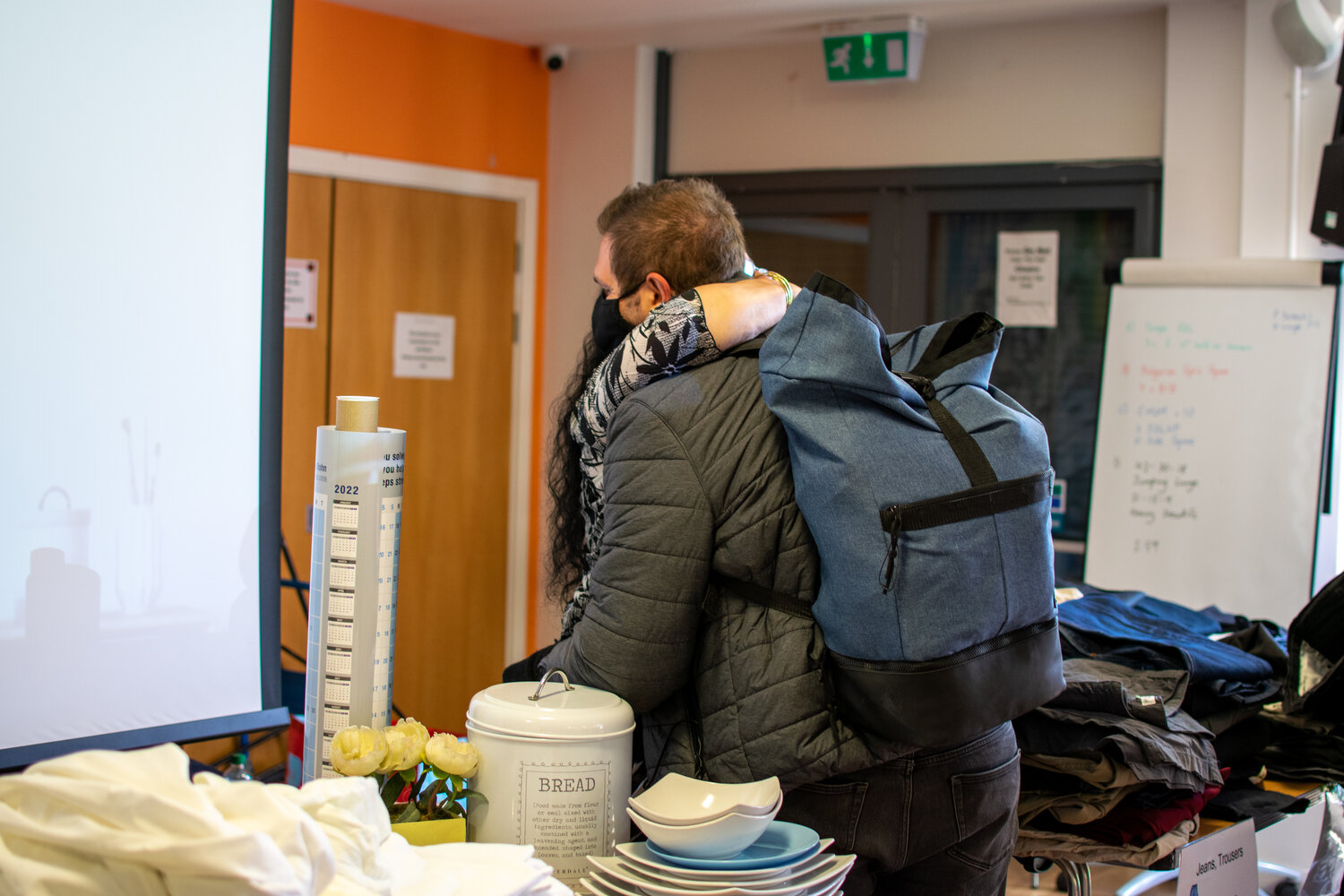
A Strike By Welsh Vets Has Exposed How Big Corporations Are Profiteering From Animal Care
Cover image: A supporter of the Valleys Vets strike waves to passing traffic in Cardiff last week
Standing on the side of a busy Merthyr Road in Cardiff, as cars flashed by, around thirty striking veterinary workers and their supporters made their presence known to the passing traffic.
For those honking their horns at the sea of Unite union flags and placards, it may have come as a surprise that this was a strike by vets. Industrial action in the sector is rare and the public image of vets has traditionally been one of small, independent practices. But that idea is rapidly breaking down.
“In recent years, there has been a feeding frenzy,” says one striking worker. “There’s been a competitive war to acquire private practices by the veterinary corporates.”
Now a strike by Valleys Vets workers in south Wales, part of the British Veterinary Union in Unite, has brought to light the damaging effects of privatised animal care.
The firm is owned by Vet Partners, which operates across 650 sites across Europe and turned over £339 million in profits over the past five years.
During the last financial year, the company acquired another 100 practices, all whilst increasing veterinary fees and failing to offer its staff a pay rise in line with inflation.
Vet Partners is ultimately owned by the private equity firm BC Partners, which boasts a £138 billion portfolio across North America and Europe.
The British Veterinary Union in Unite says that in-work poverty is rife at Valleys Vets, with 80% of support staff regularly having to borrow money to meet their basic living needs, and 5% reporting use of food banks.
Whilst the highest paid director earns £451,000, some workers say they have been forced to borrow thousands on credit cards in order to have maternity pay or have returned to work in ill health due to low sick pay.
“In particular, it’s the veterinary receptionists and the care assistants that are paid just a few pence above the minimum wage,” says one union representative. “And it’s those people, in our survey we found about eighty percent of them had to borrow money from friends or relatives to get through the month, and about five percent of them admit to going to the food bank.”
Workers receive one of the worst maternity packages in the sector and only two weeks of full sick pay. In response to a below inflation pay offer, union members at Valley Vets overwhelmingly voted in favour of industrial action in the first ballot of its kind in the UK.
But there have also been strong moves towards unionisation resulting in strike action.
The BVU achieved workplace recognition in Vets Partners for the first time in Spring 2023, and has since sought negotiations over pay, sick pay and maternity pay.
The growth of the union was described as ‘astronomical’ by one member, who added that in just two weeks, an entire practice in Brighton had unionised. After initially slow growth the union has seen its membership rapidly rise in recent years in the face of corporate acquisitions and attacks on worker rights.
The union says this has included a worsening of pay and conditions, unreasonable demands on the workforce, redundancies, the recent banning of napping at work and the failure to negotiate meaningfully with a unionised workforce.
The BVU is now the fastest growing branch in Unite, which has also caught the eye of the employers and provoked hostility towards the union.
But whilst the strike focuses on demands from workers, it is also highlighting the pernicious role the corporatisation of veterinary care is having on animals and their owners.
The strikes have come against the backdrop of a Competition and Markets Authority (CMA) investigation into the £5bn sector.
About 60% of vet practices now belong to large business groups, up from just 10% a decade ago, with six corporations including Vet Partners dominating the UK market.
The CMA’s initial survey received what the organisation called an ‘unprecedented response’ from workers but also pet owners, who reported rising prices as a major problem.
The union has said that rising prices are affecting the long term health of the service and the care that vets can provide, as some owners simply cannot afford vital treatment.
A BVU survey at Valley Vets conducted over just one week revealed £60,000 worth of recommended veterinary care was declined on the basis of affordability, a tenth of which resulted in euthanasia when pet owners could not afford to treat their critically ill pet.
One specialist vet speaking to the BBC’s You And Yours programme last week described what happened to the practice she had worked in for ten years when it was taken over by a large corporation. “The changes that myself and other colleagues noticed were pretty immediate and dramatic,” the caller said. “For example prices were common, staff cuts [of] nurses and vets, highly specialised staff were made redundant. “
This was backed up by one striking worker at the picket line, who said that “fees are going up and up and we estimate them in our practice fees have gone up by twenty five percent over the last two years.”
“Consequently fewer and fewer people can afford to have their pet undergo veterinary treatment,” they went on. “More and more people even if they’re insured are reaching their insurance limits. The conversations are getting more and more embarrassing…”
The union has argued for lower fees for pet owners during negotiations, saying that making veterinary care affordable would increase turnover and improve animal welfare.
The race to acquire veterinary practices in the pursuit of greater profits will continue to impact workers and animals and their owners. Strikes like the one in Valleys Vets is likely to be only the start of a battle to wrestle back control.


